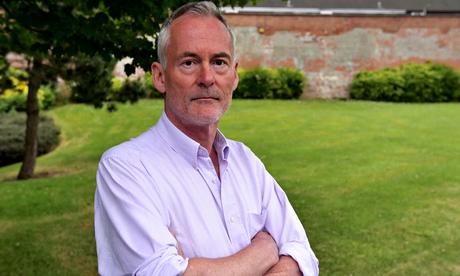|
This World: Ireland’s Lost Babies review – an appalling story, told with admirable restraint
By Lucy Mangan
There’s no point, really, in even trying to prepare yourself mentally or emotionally for a programme entitled This World: Ireland’s Lost Babies (BBC2). The bald facts, laid out by presenter Martin Sixsmith as he made his way between the emerald isle and the US, were bad enough. Between 40,000 and 60,000 babies were – by legal standards today and moral standards any time – involuntarily given up for adoption in the 1950s and 60s by Roman Catholic Irishwomen who became pregnant outside marriage. The treatment of the “fallen women” at the mother and baby homes run by fiercely unforgiving nuns was appalling. The vetting procedures for potential adoptive parents were worse. Catholic? Moneyed? You’re in. Take your pick. It didn’t matter, as Mike Hawkes and his twin sister found out, if you were the brother of a paedophile priest who would rule your family with a rod of iron. “Going against his will was not healthy. Not healthy at all.” It didn’t matter, Mary Monaghan soon knew, if your new father was a sadistic paedophile himself. “My memories,” she says, “are terrible.” Nor if you had been rejected as adopters in your own country, as Kathy Deasey discovered. She was sent to the US at the age of five to a couple who wanted her as a companion to their biological daughter. When that daughter, years later, went to college in California, they turfed Kathy out, spent her college fund, sold their home and followed what suddenly stood revealed as their only beloved child to California. “It was horrible to say goodbye,” said Kathy, trying not to cry 40 years later, “because they’re the ones who said hello to me!” Her voice rose slightly, still in disbelief, as well it might. Lily Boyce’s mother threw her out when Lily – so ignorant about sex that she didn’t realise she could be pregnant until she was nearly full term – went into labour. She walked her to the Castlepollard mother and baby home and left her on the steps. “Now you can do your own dirty work,” she said, and left. She gave birth to a boy called Joseph. “I would have loved to have kept him,” she says. “The longer I had him, the harder it was.” She had him for 17 months. You wonder how anyone bears the pain. And, rightly, you were largely left to wonder as Sixsmith’s admirably restrained and unsensationalist film continued wisely without attempting to resolve any of the ineffable mysteries suffusing it – faith, conscience, our capacity for endurance, grief, evil and forgiveness – into words. Perhaps because the Catholic church and state (they are not meaningfully distinguishable in Ireland now, let alone 40 or 50 years ago) remains genuinely convinced of its righteousness, perhaps because there is a strange quirk in human psychology that means denying a terrible decision was made is easier than admitting the scale of our mistake and attempting to rectify it, the children’s attempts to trace their biological parents in later life have been stonewalled by those who were in charge of their lives. Documentation remains untraceable until private search agencies are engaged. Information that could have been imparted in seconds over the phone takes years of effort to squeeze out. Mike’s mother had died by the time he was told who she was. Kathy’s was alive but in poor mental health. But her eyes lit up when she realised who Kathy was, and she was able to tell her daughter that it broke her heart when she was taken. “I finally found out the truth,” says Kathy. “I was never abandoned. I was never unwanted. Never.” Mary finds a small measure of peace at her mother’s graveside. You take what comfort you can in this life. May everyone involved get their just reward in the next. On, now, to happier matters – Lauren Laverne narrating the entwined stories of pop music and fashion in BBC4’s new three part series, Oh! You Pretty Things. The opening episode began with the Small Faces, whose manager Don Arden (“If I’ve ever exploited anybody it’s only because they wanted to be exploited”) paid them in clothes, which led to an explosion in Mod fashion rippling outwards from Warren Gold’s Lord John boutique in Carnaby Street. Then it was on to Cilla Black singing at the London Variety Performance in 1964 in a floorlength Biba gown that epitomised the high fashion that was coming to the high street and bringing utterly affordable utter fabulousness to all the baby boomers suddenly roaming the postwar streets with money in their drab pockets and wondering where to spend it. Psychedelia went by, appropriately, in a blur, replacing neat, spare Mod style with hallucinogenic dandyism as everyone tried to kiss the sky and make suits out of curtain fabric at the same time. Rude boy style came in with Desmond Dekker and went out with Status Quo who made denim the new uniform for those in the pop cultural know. The final minutes exploded in a shower of glitter as Roxy Music transformed the scene once more. Next week, Bowie and Zandra Rhodes. We ain’t seen nothing yet.
|
.
Any original material on these pages is copyright © BishopAccountability.org 2004. Reproduce freely with attribution.
